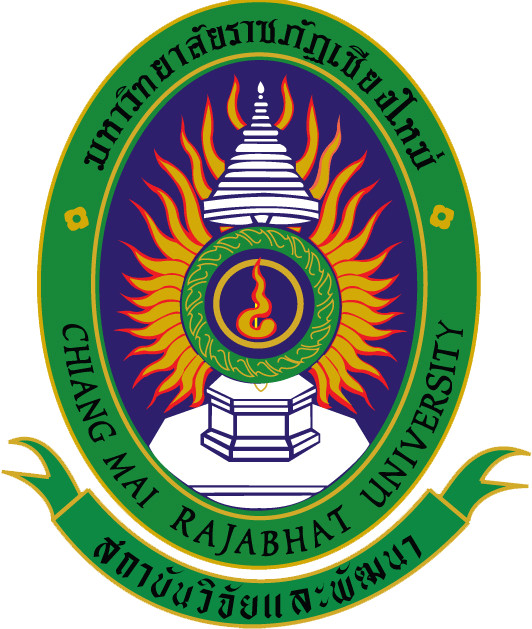
ระบบสารสนเทศงานวิจัย สถาบันวิจัยและพัฒนา มหาวิทยาลัยราชภัฏเชียงใหม่
Research Information System(RIS)
การพัฒนารูปแบบการสื่อสารประเด็นการสร้างเสริมคุณธรรมในสถานศึกษาในจังหวัดเชียงใหม่
อาจารย์พลศรัณย์ ศันยทิพย์
คณะวิทยาการจัดการ
เลขทะเบียน :
1297-63-MGT-CMRU
บทคัดย่อ
การวิจัยครั้งนี้ศึกษามีวัตุประสงค์เพื่อ (1) ศึกษารูปแบบการดำเนินงานด้านการสร้างเสริมคุณธรรมในสถานศึกษาในจังหวัดเชียงใหม่ (2) สู่การพัฒนารูปแบบการสื่อสารประเด็นการสร้างเสริมคุณธรรมในสถานศึกษาในจังหวัดเชียงใหม่อย่างมีส่วนร่วม ที่สามารถนำรูปแบบการสื่อสารประเด็นการสร้างเสริมคุณธรรมในสถานศึกษาที่ได้ (3) เผยแพร่ให้กับสถานศึกษา เป็นแนวทางพัฒนาด้านการสื่อสารของเครือข่ายสถานศึกษาคุณธรรมได้ โดยเป็นการวิจัยเชิงคุณภาพ ใช้การสัมภาษณ์โดยใช้แบบสัมภาษณ์กึ่งโครงสร้าง (Semi-structured interview form) เพื่อศึกษารูปแบบการดำเนินงาน ผลการดำเนินงาน และข้อเสนอแนะในการดำเนินงาน และการวิจัยเชิงปริมาณ ประเมินผลการดำเนินงานการสร้างเสริมคุณธรรมในสถานศึกษา โดยผู้มีส่วนในการดำเนินงาน ประกอบการวิเคราะห์เนื้อหา
ผลการวิจัยพบว่า รูปแบบการดำเนินงานด้านการสร้างเสริมคุณธรรมในสถานศึกษาในจังหวัดเชียงใหม่ จากสถานศึกษา 3 แห่ง ได้แก่ โรงเรียนสันกำแพง อำเภอสันกำแพง จังหวัดเชียงใหม่ โรงเรียนเชียงใหม่คริสเตียน อำเภอเมือง จังหวัดเชียงใหม่ โรงเรียนวัดป่าข่อยใต้ อำเภอเมือง จังหวัดเชียงใหม่ มีแนวทางการดำเนินงาน 1) มีแผนการดำเนินงานทั้งจากนโยบายระดับกระทรวง ระดับจังหวัด และหน่วยงานที่เกี่ยวข้อง ในการส่งเสริมการสร้างเสริมคุณธรรมในสถานศึกษา และจากอัตลักษณ์สถานศึกษา ที่ได้ร่วมกำหนดร่วมกัน 2) มีการดำเนินงานอย่างมีระบบและกลไกภายในสถานศึกษา ตั้งแต่ระดับผู้อำนวยการ ผู้บริหารรับผิดชอบงานพัฒนานักเรียน อนุศาสก กลุ่มงานพัฒนาผู้เรียน กลุ่มวิชาสังคมศึกษา (หมวดสังคมศึกษา) กลุ่มสภานักเรียน (กรรมการนักเรียน ผู้นำนักเรียน) มีการศึกษาองค์ความรู้ เนื้อหา เพื่อใช้ในการดำเนินงาน มีการจัดกิจกรรม และสร้างนวัตกรรมด้านคุณธรรม สู่การเรียนรู้อย่างมีส่วนร่วมของผู้บริหาร ครู บุคลากร คณะกรรมการนักเรียน นักเรียน ผู้ปกครอง และชุมชน ด้านการประเมินผล 3) มีการติดตามและประเมินผลการดำเนินงาน และสรุปกิจกรรม ที่เห็นผลการเปลี่ยนแปลงจนเกิดพฤติกรรมที่พึงประสงค์อย่างเป็นรูปธรรม มีการกำหนดตัวชี้วัดความสำเร็จที่ชัดเจน และผู้ดำเนินโครงการก็ได้เรียนรู้และพัฒนาตนเองจากการคิดสร้างสรรค์กิจกรรม การดำเนินงาน และการพัฒนานวัตกรรมจนได้รับการยกย่องให้ได้รับรางวัลสถานศึกษาคุณธรรม และรางวัลที่เกี่ยวข้อง เกิดแนวปฏิบัติที่ดีที่สามารถต่อยอดในการดำเนินงานของสถานศึกษา และเป็นต้นแบบให้กับสถานศึกษาอื่นใช้เป็นแนวทางในการดำเนินงานด้านการสร้างเสริมคุณธรรมในสถานศึกษา
ประกอบกับข้อมูลเชิงปริมาณพบว่า ในการวางแผนงาน มีการได้รับการสนับสนุนที่เชื่อมั่นได้ว่าจะส่งผลให้การดำเนินงานสำเร็จ ในการดำเนินงาน เกิดกระบวนการมีส่วนร่วมในการพัฒนาคุณธรรมในสถานศึกษาจากทุกภาคส่วน และในการประเมินผล พบว่าจากการดำเนินงานส่งผลต่อการเปลี่ยนแปลงด้านคุณธรรมของนักเรียน เกิดพฤติกรรมที่พึงประสงค์เพิ่มมากขึ้น เป็นประเด็นที่เกิดกับการดำเนินงานด้านการสร้างเสริมคุณธรรมในสถานศึกษามากที่สุด สอดคล้องกับผลการดำเนินงานของทั้ง 3 สถานศึกษา สามารถพัฒนาเป็นรูปแบบการสื่อสารที่เริ่มจากการวางแผน สู่การดำเนินงานอย่างมีส่วนร่วม ภายใต้กรอบ 5 ด้าน ได้แก่ 1) ด้านการบริหารจัดการ 2) ด้านการจัดกิจกรรมและการบูรณาการ ที่เน้นการสร้างสรรค์สื่อและกิจกรรมด้านการสร้างเสริมคุณธรรมในสถานศึกษา โดยใช้นวัตกรรมและช่องทางการสื่อสารที่เหมาะกับบริบทสังคมและเทคโนโลยีปัจจุบัน 3) ด้านสภาพแวดล้อมและสิ่งสนับสนุนการเรียนรู้ 4) ด้านการมีส่วนร่วมของผู้ปกครอง ชุมชน สถาบันศาสนา และหน่วยงานที่เกี่ยวข้อง 5) ด้านการติดตามและประเมินผล ที่มีการประเมินผลจากการมีส่วนร่วม วัดผลจากพฤติกรรมที่พึงประสงค์ และสามารถสรุปผลการดำเนินงาน สื่อสารและประชาสัมพันธ์สู่สาธารณะ ที่สามารถเป็นแนวทางให้กับสถานศึกษาที่สนใจ และหน่วยงานที่เกี่ยวข้อง เพื่อนำไปใช้ให้เกิดประโยชน์ในการสร้างเสริมคุณธรรมในสถานศึกษาให้เหมาะกับบริบทสถานศึกษาต่อไป
Abstract
The purposes of this research were: 1) to study the operation model of moral promotion in schools in Chiang Mai Province, 2) to develop communication model of moral construction in schools in Chiang Mai with participation that can be used in schools, and 3) to disseminate the model to schools as guidelines for the development of communication in the network of moral schools. In terms of qualitative research, the interview was conducted using a semi-structured interview form to study the operation model, results, and suggestions for implementation. In terms of quantitative research, the result evaluation of moral construction in schools was conducted by those involved in the implementation, along with content analysis.
The results showed that the operation model of moral construction in three schools in Chiang Mai: Sankamphaeng School, Sankamphaeng District, Chiang Mai, Chiang Mai Christian School, Mueang District, Chiang Mai, and Wat Pa Khot Tai School, Mueang School, Chiang Mai, had operational guidelines as follows: 1) There were operational plans from policies at the ministry level, provincial level, and related agencies in order to promote moral construction in schools and from the school identity jointly defined. 2) The implementation within the schools was conducted with systematic mechanism from director level. The administrators were responsible for student development, teachers taking care of students in dormitory, student development group, Social Studies, Student Council (Student Committee, Student Leader). The body of knowledge as well as the content was studied for implementation. In addition, activities and innovations for moral construction were created with the participation of administrators, teachers, personnel, student committee, students, parents, and the community. 3) Monitoring and evaluation was implemented, the activities resulting in changes and contributing desirable behaviors in a concrete manner were summarized. The indicators for success were clearly identified. The project operators could learn and develop themselves through creative activities, implementation, innovation development. Eventually, Moral Academy Award and related awards were received, leading to good practices that can be extended in the operation of schools, and as a model for other schools to use as guidelines for the implementation of moral construction in educational institutions.
In terms of the quantitative data, it revealed as follows: 1) Regarding planning, there was reliable support that would result in a successful operation. 2) For implementation, there was a process of participation in moral development in schools from all sectors. And 3) In evaluation, the implementation affected the moral change of students. This issue occurred with the implementation of moral construction in schools the most, consistent with the implementation results of all three schools. The communication model was able to be developed that started with planning, leading to implementation with participation under the framework of five aspects: 1) management, 2) arranging activities and integration focusing on creating media and activities regarding moral construction in schools by using innovations and communication channels that are suitable for the current social and technological context, 3) environment and learning support, 4) participation of parents, communities, religious institutions and related agencies, 5) monitoring and evaluation with the participation, measuring the results from the desirable behavior and able to summarize the implementation results, communicate and publicize that can be guidelines for interested schools and related agencies to be used for promoting morality in schools to suit the context of educational institutions.
ไฟล์งานวิจัย
22 30 เม.ย. 2563
กองทุนวิจัย มหาวิทยาลัยราชภัฏเชียงใหม่
202 ถ.ช้างเผือก ต.ช้างเผือก อ.เมือง จ.เชียงใหม่ 503000
053-88-5555